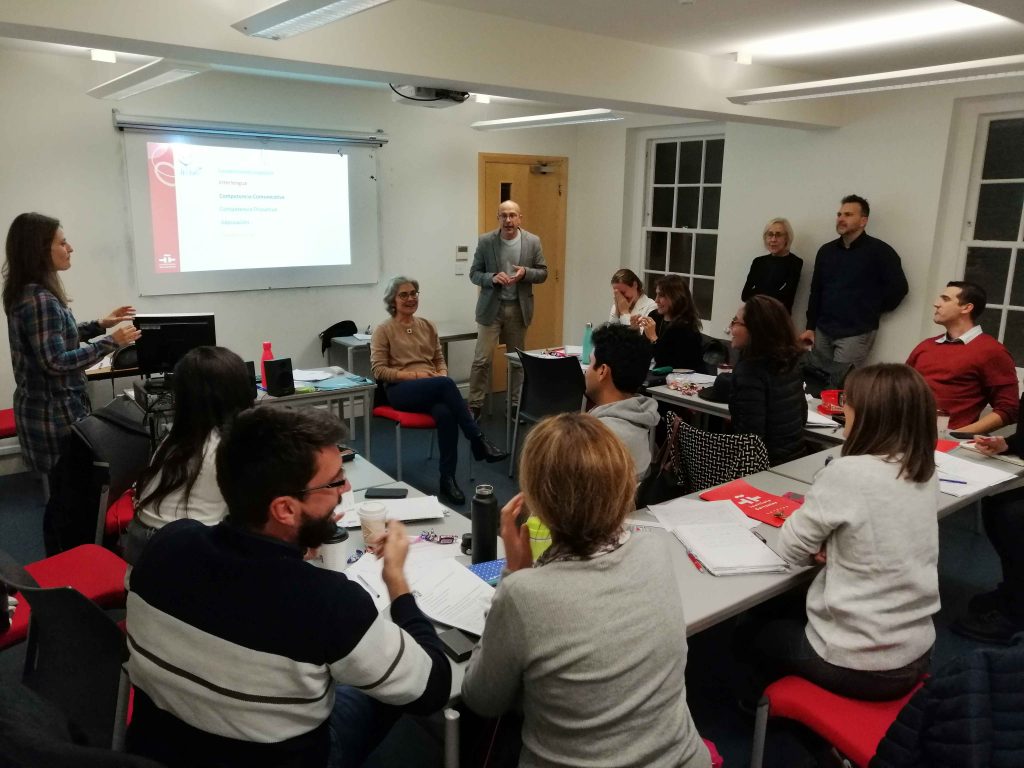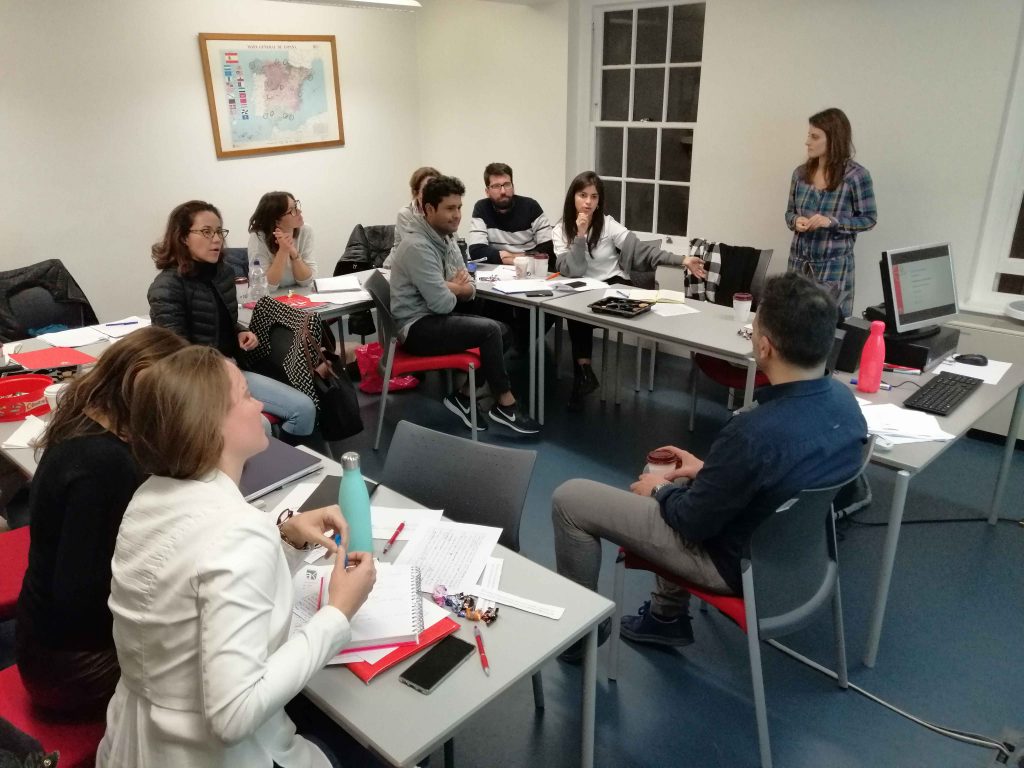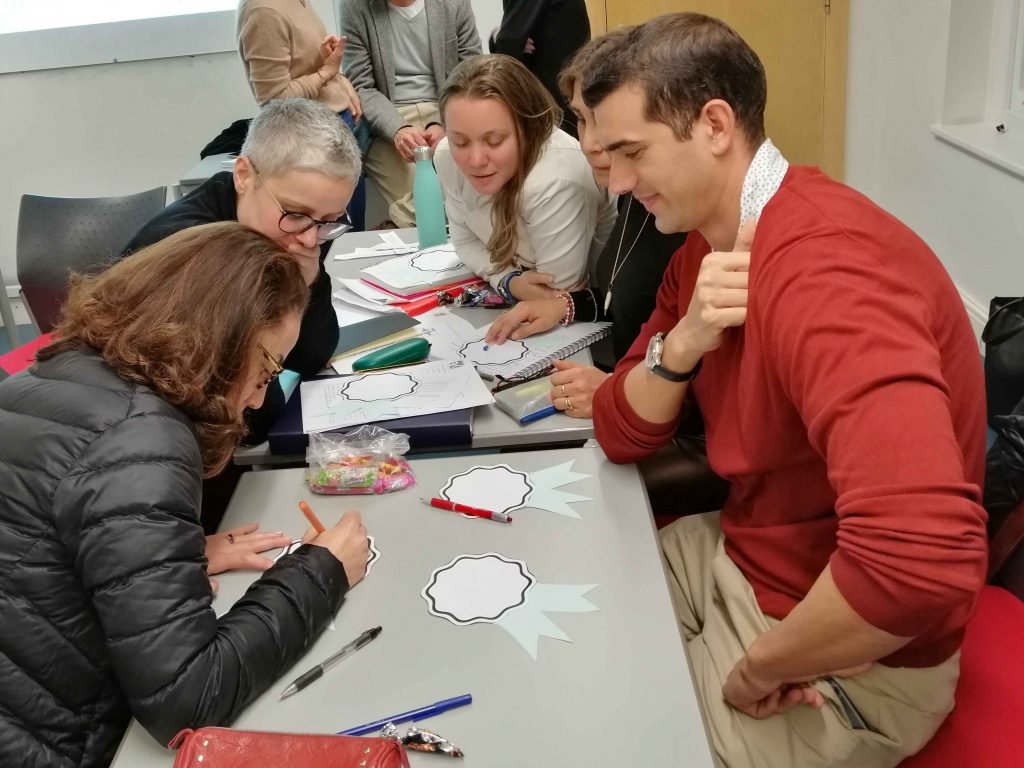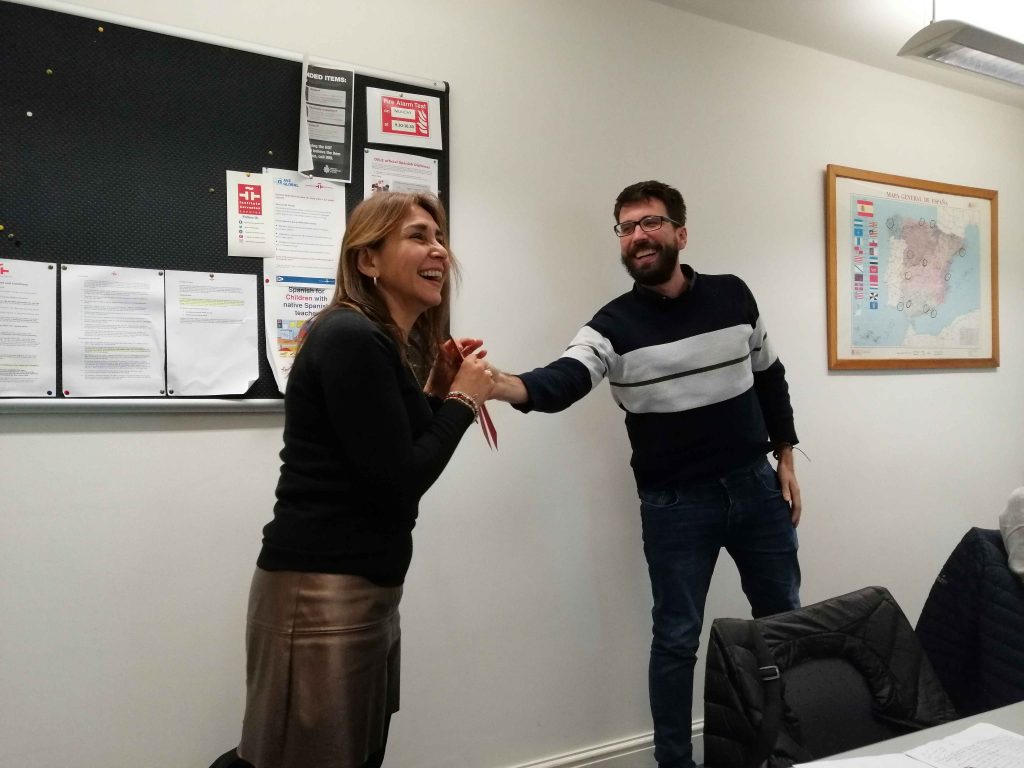“An enormous opportunity”: enthusiastic response to DADIC, the new Cervantes diploma for Spanish teachers

Students who wish to obtain the DADIC (the newly released Diploma of Teaching Accreditation by Instituto Cervantes) to accredit themselves as Spanish teachers in London have defined the initial training as practical and a “tremendously positive and a huge opportunity.»
This training course, aimed at future Spanish teachers, is based on Instituto Cervantes’ own methodology: a student-centred and action-oriented conceptual approach with a strong presence of collaborative and practical work: observation and teaching, development of a portfolio, etc.
Head of Studies, Pablo Martínez Gila explained that the course is based on the teaching practices of students (their experiences as students, the classes they observe and teach at Instituto Cervantes, etc.). Additionally, their analysis and reflections on these experiences helps to build the theory collaboratively. And the result is much more positive than in a traditional teacher training course: students assimilate much better and apply the concepts presented more effectively in class.

Student Testimonials
Student feedback from the course has wholeheartedly agreed with Martínez Gila that the course is more effective. Julia, a current student of the DADIC, explains: “I had the pleasure of attending two class observations. The experience for me has been amazing and very satisfying. It was the first time I was in a class without being a student. As I was writing everything I saw in class, I realised many things, especially the relationship between teacher and student”.
Equally, another current student, Sandra affirms that the self-evaluations she did in one of the workshops were the most interesting part of the course because they offer a very clear course of improvement: “The grammar and teaching theories can be completed with individual work, but this type of learning in my training can only be done by professionals who guide and support you in such a professional and constructive way”.

Meeting all expectations
Another student, David, highlights the importance of having addressed the issue of making mistakes and, subsequently, how to identify the best ways of correcting them. The fact that this approach acknowledges that students can make mistakes and learn from them gave David, “a clearer idea about which strategies may be the most useful for correction of oral and written errors.”
“Being honest” – says David – “this course is fulfilling all the expectations I had before enrolling, at this time and concepts unknown to me and I feel confident enough to start this career as a teacher. If I had to highlight some of what I learned, it would be the importance of putting the student at the centre of learning. ”

Another student points out that the first part of the course to obtain the Diploma of Teaching Accreditation of the Cervantes Institute (autonomous level) has been a “super positive experience and a huge opportunity to identify and learn from our mistakes. I am very grateful to the teachers for their dedication and I only hope to accumulate hours of experience, enjoyment and to continue learning in the second part. ”
Second part of the course
The second part of the course will take place between January 17 and February 28, 2020, while those interested in starting the first part can enroll for the course that will be taught between May 22 and July 3, 2020


